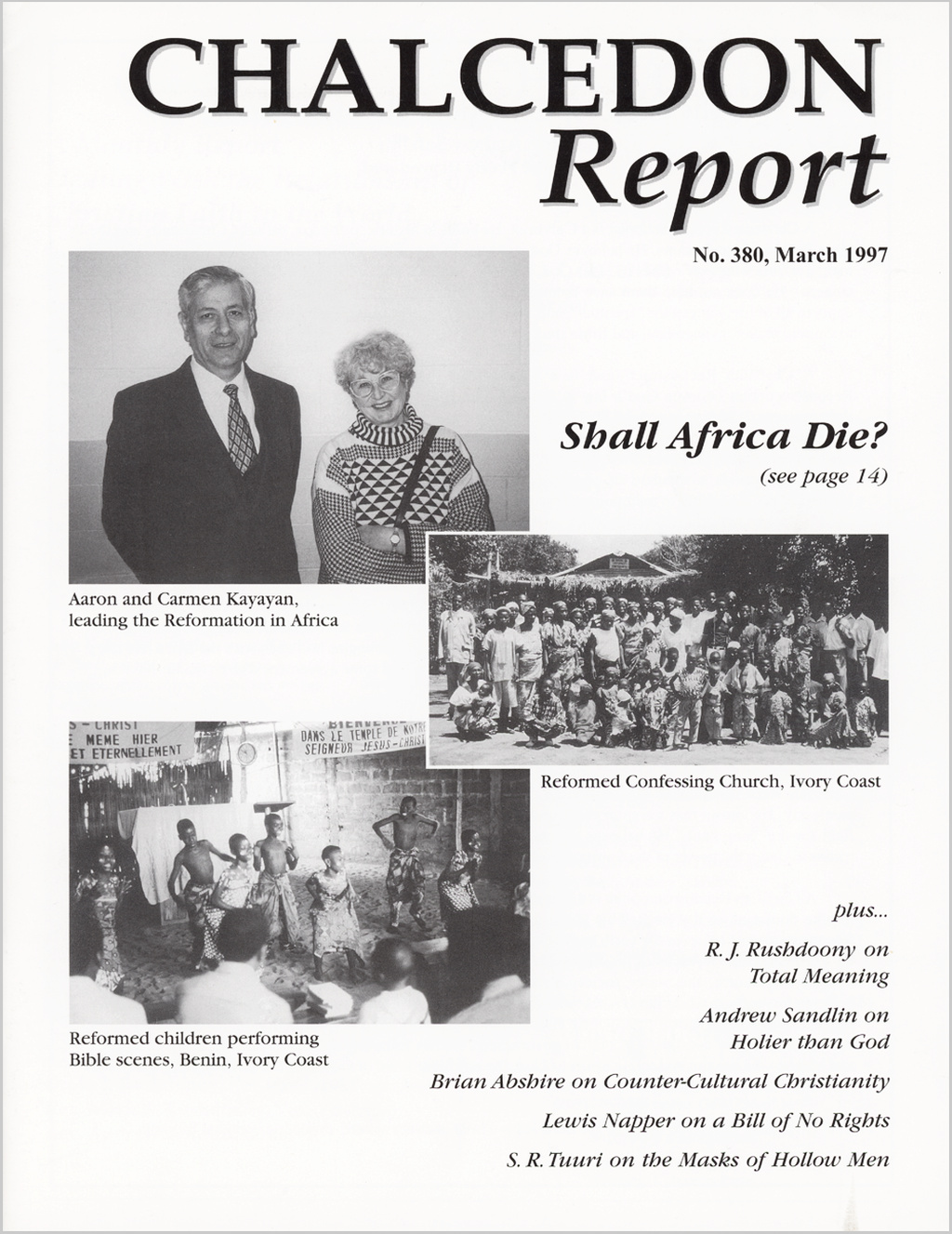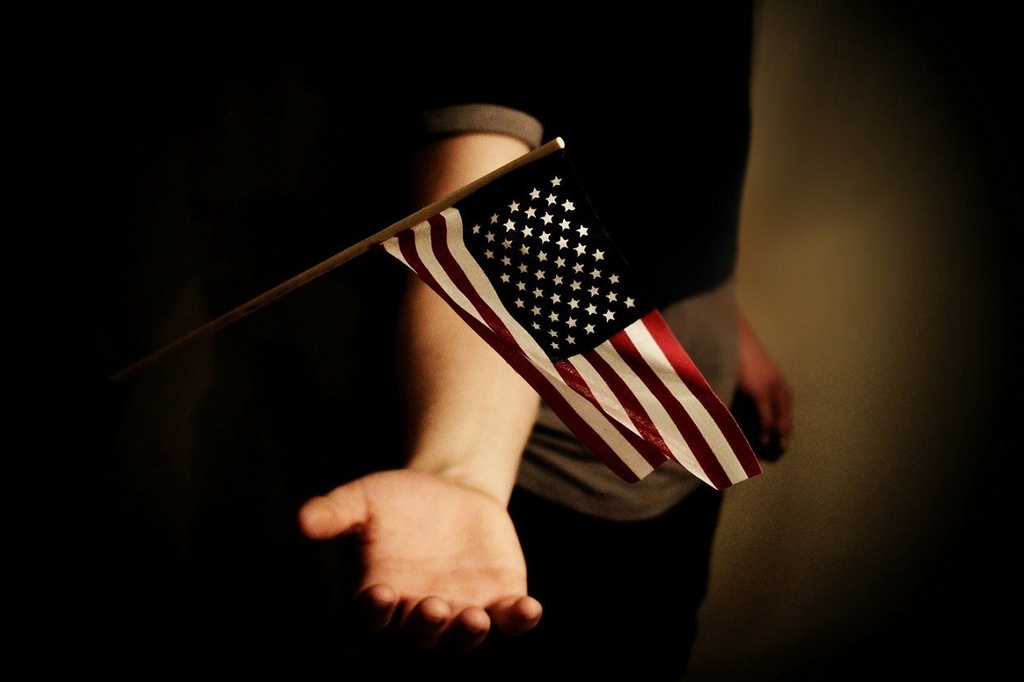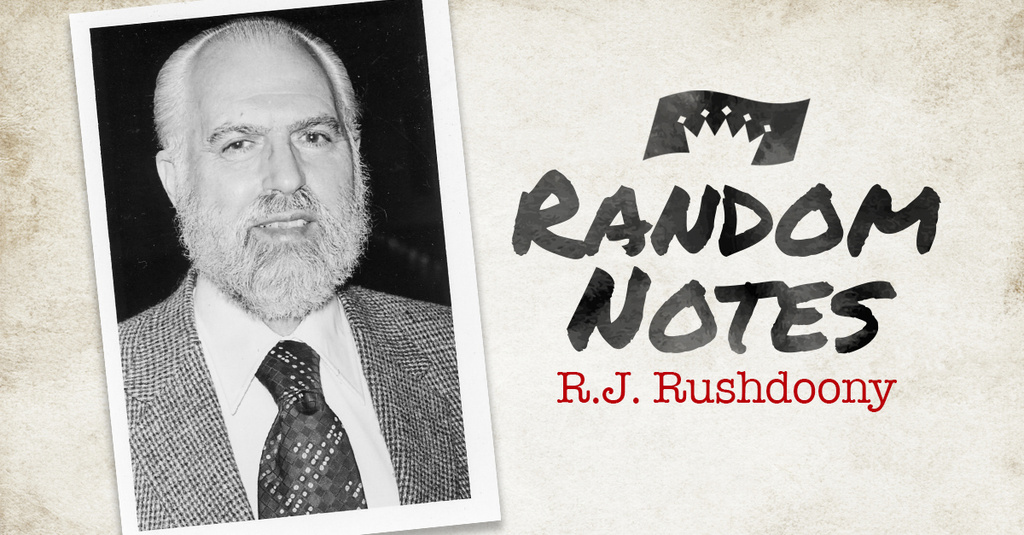
Magazine Issue
March 1997 Articles:

Total Meaning

- R. J. Rushdoony

Holier Than God
- P. Andrew Sandlin

Books and Things 4
- P. Andrew Sandlin

Obedience and Sanctification

- Mark R. Rushdoony

Unspoiled By The Vain Philosopher, I Cause Him To Flee When I Ask Real-Life Questions About (Gasp!) God
- John Lofton

"When You Christian Me?"
- Steve M. Schlissel

Still Re-Thinking Church
- Steve M. Schlissel

Another Fine Mess We've Gotten Ourselves Into (Counter-Cultural Christianity)
- Brian M. Abshire

Shall Africa Die?
- Aaron R. Kayayan

Bill of No Rights
- Lewis Napper

Historical Criticism and the Bible (Part II)
- Joseph P. Braswell

Report from Zambia
- Monte E. Wilson, III

The Masks of Hollow Men
- S. R. Tuuri

Imprecatory Prayers
- David Chilton

Real Affirmative Action
- Theron Johnson

The Bankruptcy of Modern Liberalism . . . and Therefore Modern Conservatism
- P. Andrew Sandlin

Descartes and Rationalism

- R. J. Rushdoony

Random Notes, 66

- R. J. Rushdoony

God Uses "Underwriters" to Sustain Chalcedon

- Mark R. Rushdoony